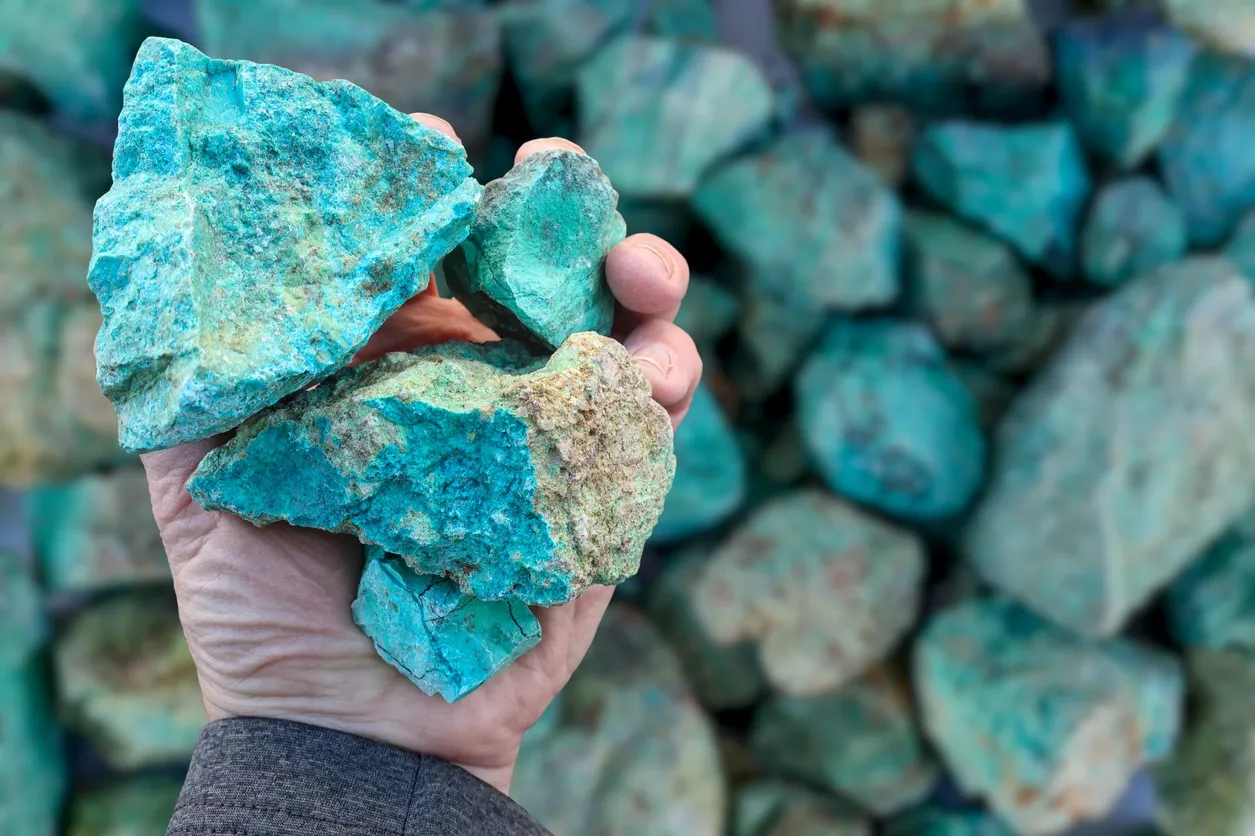

Brazil is emerging as a key player in the global rare earths market, driven by growing geopolitical tensions and Western efforts to reduce dependence on China for these critical minerals. With the third-largest rare earth reserves in the world, Brazil has the potential to become a significant supplier of the materials essential for green energy, advanced technology, and defense. However, challenges such as low prices, technical complexities, and competition from China continue to shape the industry's trajectory.
Brazil’s rare earth sector is still a relatively small part of the country’s mining industry, but investments are increasing rapidly. The Brazilian Mining Association (Ibram) estimates that investments in rare earth projects will reach $1.46 billion between 2024 and 2028, a significant jump from just $150 million in the previous five years. However, this still pales in comparison to the $64.5 billion expected to be invested in Brazil’s broader mining industry, primarily in iron ore, copper, and gold.
Despite this, interest from international investors is growing. Companies like Aclara Resources, Viridis Mining & Minerals, Meteoric Resources, and Terra Brasil Minerals are pushing forward with new projects, particularly in Goiás and Minas Gerais states. The Carina project, the most heavily invested rare earth venture in Brazil, is expected to begin production in 2028 and has a planned lifespan of 22 years. If successful, it will contribute significantly to global supplies of dysprosium, terbium, and praseodymium-neodymium (Pr-Nd), all essential for high-performance magnets used in electric vehicles and renewable energy technologies.
The Serra Verde Group is at the forefront of Brazil’s rare earth industry. The company, which started commercial production in Goiás state in 2023, plans to ramp up output to 5,000 tons of rare earth oxide annually by 2026, with potential to double production before 2030. Serra Verde’s efforts have earned recognition from the Minerals Security Partnership, an initiative involving the U.S. and 14 allied nations aimed at securing critical mineral supply chains.
Serra Verde is also exploring strategic partnerships to expand its refining and processing capabilities. Backed by investors such as Denham Capital and the UK's Vision Blue Resources, the company secured a $150 million investment in October 2024 and is currently negotiating further funding. Despite challenges such as a 70% slump in rare earth prices over the past two years, Serra Verde remains optimistic, forecasting an 8.5% annual increase in demand for its products until 2035.
China dominates the rare earths industry, accounting for 70% of global production and 90% of refining capacity. The U.S. and its allies have been working to establish an alternative supply chain by 2027, fearing supply disruptions amid rising geopolitical tensions. While Brazil’s rare earth mining sector is growing, refining and processing remain significant hurdles.
Currently, much of Brazil’s rare earth output is still being shipped to Asia, reinforcing concerns that the country could become just another raw material supplier rather than a fully integrated producer. To address this, the Brazilian government has launched a $194 million fund to finance strategic mineral projects and is also developing a rare earth magnet factory to support domestic processing. Additionally, companies such as Ionic Rare Earths and Viridis Mining & Minerals are working on rare earth recycling technologies to strengthen Brazil’s role in the value chain.
Brazil’s rare earth industry faces multiple obstacles, including technical challenges in processing, volatile prices, and competition from more established producers like China and Australia. However, the country has several competitive advantages, including low labor costs, access to clean hydropower, and well-established mining regulations.
If Brazil successfully expands its rare earth production and processing capabilities, it could become a key alternative supplier to the West. However, without significant investment in refining infrastructure, Brazil may struggle to break free from the traditional role of exporting raw materials rather than capturing more value in the supply chain.
With the right partnerships, government support, and technological advancements, Brazil has the potential to establish itself as a major player in the global rare earth industry. The next decade will be critical in determining whether the country can turn its vast mineral wealth into a strategic advantage on the world stage.
https://www.reuters.com/markets/commodities/brazil-joins-race-loosen-chinas-grip-rare-earths-industry-2024-06-17/
https://www.mining.com/web/brazilian-miner-boosts-rare-earths-output-in-challenge-to-chinas-grip/
https://www.metal.com/en/newscontent/103130263